Manpower

Brief Synopsis
Cast & Crew
Raoul Walsh
Edward G. Robinson
Marlene Dietrich
George Raft
Alan Hale
Frank Mchugh
Film Details
Technical Specs

Synopsis
While working on a high power line during a raging storm, Southern California lineman Hank McHenry sustains a permanent leg injury. No longer able to work on the lines, he is made foreman of a team that includes his friends Johnny Marshall and Antoine "Pop" Duval. One cold night, an ice storm downs some lines, and Pop is killed when he touches one. Hank, as foreman, must tell Pop's daughter Fay, who was recently released from prison, and he begs Johnny to accompany him. Johnny is angered by Fay's unsentimental acceptance of her father's death, but Hank is attracted to her and later delivers some money to her, claiming that it came from Pop's insurance. Fay, who works as a hostess in a Los Angeles nightclub, isn't fooled by Hank's ruse, but takes the money anyway. Despite Johnny's warnings, Hank continues to see Fay, and she, in turn, tolerates him because he is kind to her. Eventually Hank asks Fay to marry him, and although she is not in love with him, she agrees. Knowing that Fay cannot possibly love the uncouth Hank, Johnny offers to buy her off, but only succeeds in reaffirming her decision. At first, Fay tries hard to be a good wife to Hank. Then Johnny is seriously injured at work and Hank brings him home to recuperate. Fay falls in love with the handsome Johnny, but when she tells him about her feelings, he hurriedly leaves the house. Hank's team travels to work at Boulder Dam, and Fay takes advantage of Hank's absence to leave him. Seeking a contact at the nightclub where she used to work, Fay is caught in a raid. Johnny takes the police call and drives down to bail her out of jail. When he learns that Fay was planning to leave Hank, he insists that she continue her marriage and drives her to the camp. There a bad storm blows in and the crew receives an emergency call. Because Johnny does not want to come between Hank and Fay, he quits his job, but this does not stop Fay from leaving Hank. Hank blames Johnny for the end of his marriage and, despite his lameness, climbs up the wires after his friend. The two men fight and Hank falls to his death. Before he dies, Fay tells him that he has falsely accused Johnny. She then leaves, but is joined by Johnny, who has decided to stay with her.

Director

Raoul Walsh
Cast

Edward G. Robinson

Marlene Dietrich

George Raft

Alan Hale
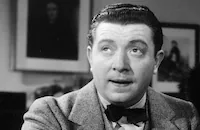
Frank Mchugh
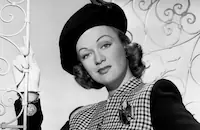
Eve Arden
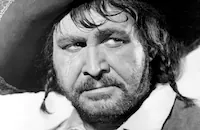
Barton Maclane

Ward Bond

Walter Catlett
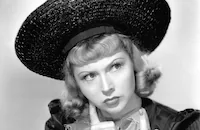
Joyce Compton

Lucia Carroll
Egon Brecher
Cliff Clark

Joseph Crehan
Ben Welden

Barbara Pepper
Dorothy Appleby
Carl Harbaugh
Barbara Land
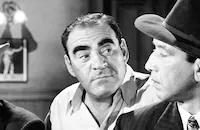
Ralph Dunn
Harry Strang
Nat Carr
John Kelly
Pat Mckee
Joan Winfield
Audra Lindley
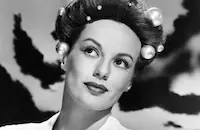
Faye Emerson
Isabel Withers

James Flavin
Chester Clute
John Dilson
Dorothy Vaughan
Billy Wayne
Arthur Q. Bryan
Dick Elliott
Harry Seymour

Nella Walker
Brenda Fowler
Joyce Bryant
Gayle Mellott
Muriel Barr
Harry Holman
Vera Lewis
Beal Wong
Joe Devlin
Georgia Caine
John Harmon
Jean Ames

Jane Randolph
Frank Mayo
Eddy Chandler

Lee Phelps
William Gould
Robert Strange
Leah Baird
Herbert Haywood
Drew Roddy
Peter Caldwell
Harry Harvey Jr.
Bobby Robb
Murray Alper
Charles Sullivan
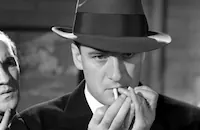
Elliott Sullivan
William Newell
Dick Wessel
Fred Graham
Cliff Saum
Roland Drew
Eddie Fetherston
Charles Sherlock
Jeffrey Sayre
De Wolfe Hopper
Al Herman
Crew
Milo Anderson
Hugh Cummings
Ralph Dawson
Adolph Deutsch
Verne Elliott
Leo F. Forbstein
Ernie Haller
Byron Haskin
Mark Hellinger
Frederick Hollander
H. F. Koenekamp
Frank Loesser
Richard Macaulay
Frank Mattison
Max Parker
Jack Saper
Russ Saunders
Dolph Thomas
Jerry Wald
Perc Westmore

Photo Collections
Videos
Movie Clip





Film Details
Technical Specs

Articles
Manpower
The trouble started with casting. Dietrich was the first star signed for the picture. Raft, who'd turned down roles in The Maltese Falcon (1941) and High Sierra (1941) that would go on to make Bogart a star, would likely have turned down Manpower as well if not for Dietrich. Raft had been fascinated with Dietrich ever since she'd arrived on the Paramount lot, apparently telling friend Gary Cooper at one point that he'd "give a year's salary for one night" with the star. (Over the course of filming Manpower Raft would get his wish and more. After beginning an affair, Dietrich moved in with Raft for a time.) With Dietrich and Raft committed to the movie, Warner Bros. still believed it needed another big name and brought in Robinson, much to Raft's dissatisfaction. Raft believed Robinson was miscast and that the role called for a big guy. Of course it probably didn't help Raft's feelings when Robinson received top billing. Dietrich, who was paid the most of the three at $100,000, received second billing, leaving Raft third billed.
Some of the on-screen competition for Dietrich probably spilled over into real life also. Raft was obviously taken with Dietrich, so much so that he got Jack Warner's approval to change a scene to prevent his character from looking weak in front of her. And Robinson seemed to appreciate Dietrich too, admiring her beauty and what he called a shared passion for the work. But the real conflict between Raft and Robinson arose over the different reading of a scene in Manpower. After a blackout, Raft and Robinson's characters are called on to climb up and repair some damaged lines during a storm. Raft believed it would be more authentic to let the characters climb in silence and only add dialogue once they reached the top of the poles. But Robinson argued for adding some dialogue before the climb. Tensions escalated pretty quickly, and before director Raoul Walsh could step in, several punches were thrown. Apparently Robinson took the brunt of it. He walked off the set and refused to continue with the movie. Time lost in filming sent the picture $200,000 over budget and, finally, the dispute had to be settled by SAG. Robinson and Raft finished this picture, but their relationship was icy to say the least. Dietrich simply stayed out of it.
Manpower certainly had its share of bad luck. During one scene, Raft's character strikes Dietrich. Hitting a woman went against everything Raft believed in, but he played the scene nonetheless. Unfortunately, he played it a little too well, accidentally making contact with Dietrich's face. The blow knocked her down a flight of stairs, breaking the actress' ankle. Even Raft didn't make it out of Manpower untouched. He fell 38 feet from a telephone pole and was rushed to the hospital unconscious, in shock and with three broken ribs.
But all's well that ends well. Dietrich and Raft went their separate ways after Manpower wrapped, but apparently maintained a friendly relationship. And Raft and Robinson would meet again on better terms. Years later the actors teamed up for a benefit, using the opportunity to poke fun at their relationship, which by then was something of a Hollywood legend. Robinson pointed a finger at Raft and told him to "get out of town." Raft began flipping his famous coin from Scarface (1932) and warned Robinson that Hollywood wasn't "big enough for the both of us." Much to the audience's delight, Raft and Robinson then hugged and danced off the stage together. The feud was over. And later, in his old age, a hospitalized Edward G. Robinson would receive a telegram that read, "Get well. Your pal, George Raft."
Producer: Mark Hellinger, Hal B. Wallis
Director: Raoul Walsh
Screenplay: Richard Macaulay, Jerry Wald
Cinematography: Ernest Haller
Editing: Ralph Dawson
Art Direction: Max Parker
Music: Adolph Deutsch, Frederick Hollander, Heinz Roemheld
Cast: Edward G. Robinson (Hank McHenry), Marlene Dietrich (Fay Duval), George Raft (Johnny Marshall), Alan Hale (Jumbo Wells), Frank McHugh (Omaha), Eve Arden (Dolly), Ward Bond (Eddie Adams), Joyce Compton (Scarlett).
BW-103m.
By Stephanie Thames

Manpower
Quotes
Trivia
Humphrey Bogart was originally cast in this film, but George Raft refused to work with him.
A fistfight developed on the set between stars Edward G. Robinson and George Raft when Raft spun Robinson around too hard for a scene.
Notes
The film's working titles were Hard to Handle, Hard to Get and Handle with Care. News items in Hollywood Reporter add the following information about the production: Claire Trevor was considered for the Marlene Dietrich role. Broderick Crawford and Victor McLaglen were considered for the part played by Edward G. Robinson. According to memos and telegrams reproduced in a modern source, Humphrey Bogart was to have been cast in the role of "Hank McHenry," but George Raft refused to make the film if Bogart was his co-star. Hollywood Reporter review mentions that a fistfight between Raft and Robinson was shot by a Life magazine photographer who was visiting the film's set.
A letter from Warner Bros. executive Roy Obringer to the Screen Actors Guild, which is reproduced in a modern source, confirms that Raft made a strong verbal attack against Robinson regarding a line of Robinson's dialogue. After the attack, the letter continues, Robinson left the set and the production was stopped for several hours. Several days later, Raft pushed Robinson around the set and again verbally attacked him. Again filming was stopped, this time for an entire day. Modern sources add that Raft was romantically interested in Marlene Dietrich at the time and believed that Robinson was also interested in her. Some sources include a second song, "I'm in No Mood for Music," but only one song was credited on the film and only one song was heard in the viewed print. Although Richard Macaulay and Jerry Wald are credited with an original screenplay, the film's story closely resembles that of the 1931 Warner Bros. film Other Men's Women and the studio's 1932 film Tiger Shark (see AFI Catalog of Feature Films, 1931-40; F3.3293 & F3.4651).
The 1991 TriStar film Bugsy featured a sequence in which Ben Siegel pays a visit to his friend George Raft on the set of Manpower and meets actress Virginia Hill, who subsequently became his mistress. Edward G. Robinson, Marlene Dietrich and George Raft reprised their roles in a March 16, 1942 Lux Radio Theatre broadcast of the story.

Miscellaneous Notes
Released in United States 1941
Released in United States 1941













